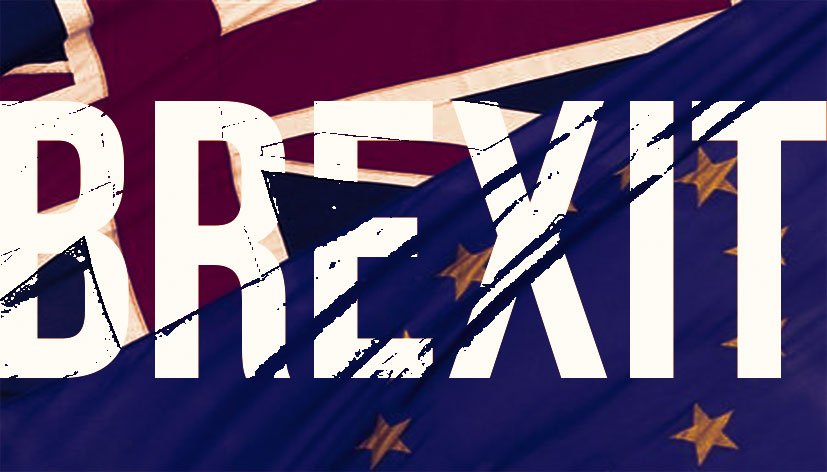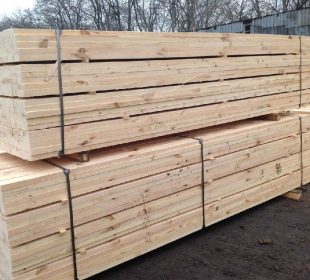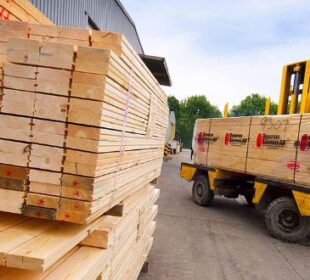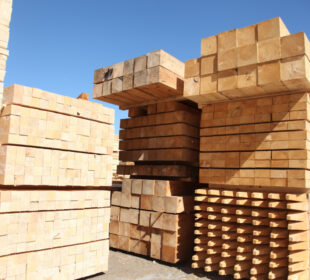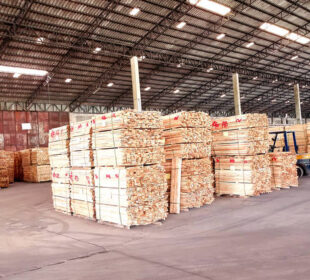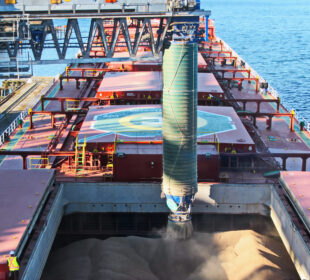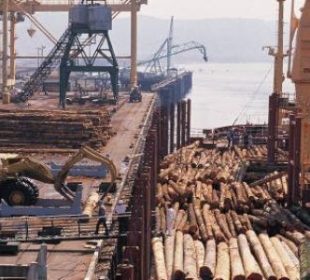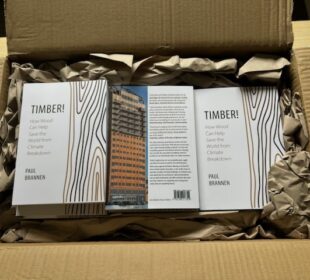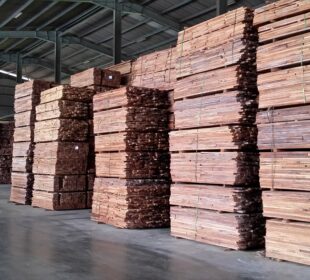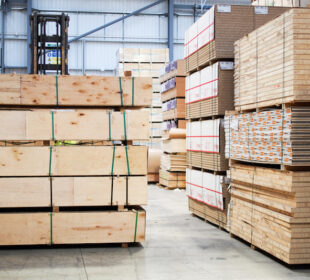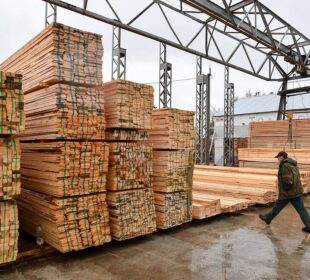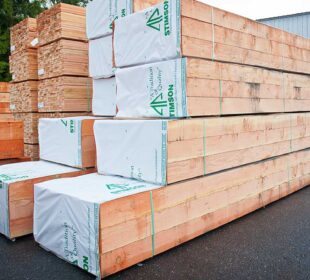UK tropical and other timber importers were urged to evaluate the impacts for their businesses of a no-deal Brexit and prepare accordingly at October’s UK Construction Week (UKCW) exhibition.
At the UKCW, the biggest UK building industry show, the UK Timber Trade Federation (TTF) and the country’s EU Timber Regulation and FLEGT Competent Authority, the Office for Product Safety and Standards (OPSS), teamed up to present on the implications of Brexit for importers’ responsibilities under the EU Timber Regulation, or the UK Timber Regulation (UKTR) as it will be known after the country’s EU departure.
Representing the TTF, head of sustainability Xiao Ma said importers should prepare for a no-deal Brexit and the UK trading under World Trade Organisation rules as there was currently no certainty that a deal would be struck at present, or what repercussions it might have for UK timber importing.
While the UK is assimilating the EUTR, as the UKTR, into post-Brexit UK law, Ms Ma said that, under its terms, all timber imports from the EU, whether they are transiting the latter or originate from EU countries, will have to undergo UKTR due diligence.
Currently, she said, just 12.62% of UK timber imports are sourced from outside the EU and subject to EUTR due diligence.
“That means that a lot more UK timber importers after Brexit will have to undertake due diligence, many of them for the first time,” said Ms Ma.
Running through the due diligence procedure, she said, it requires full product information, including product type, timber species, quantity, supplier name, plus information on the country of origin and details of the supply chain.
Supporting documentation is required and a summary of risks of illegality involved. If the risk is greater than negligible, importers must detail mitigating action.
“The key for UK companies is to liaise with EU suppliers as soon as possible,” said Ms Ma. “EU companies need to know the information required of them and UK importers if the supplier is willing to share it. Some EU suppliers may regard details of their supply chains, as commercially sensitive and confidential and be reluctant to divulge them.”
Importers, she advised, should also ‘prioritise engagement’ with EUTR/UKTR issues, focusing first on more complex supply chains.
Bhaven Bhatt, enforcement team leader at the OPSS, stressed that the meaning of the term ‘operator’ for UK importers will also change on Brexit. Previously the ‘operator’ was the importer who ‘first placed’ timber on the EU market. Under the UKTR that will be ‘first placed on the UK market’.
Similarly the definition of a ‘trader’ will change from a company that buys or sells a product already placed on the EU market to one who buys and sells goods already placed on the UK market.
Under those terms, operators will have to undertake due diligence on their suppliers, and traders to identify operators or traders who have supplied them, and, where applicable, the traders to whom they sell.
Likewise, EU companies which buy timber products from the UK will be classed as ‘operators’ and have to undertake due diligence on their suppliers under the EUTR.
In terms of its implementation of the UKTR, the OPSS says it will operate as it did with the EUTR on the basis of illegality risk assessment of product, source of supply and supply chain. The difference will be that this risk assessment will now be extended to EU countries and suppliers.
OPSS Environmental Enforcement & Compliance Team Manager Deanne Hughes said that initially post Brexit, some allowance would be made for companies undertaking due diligence for the first time to enable them to bed systems in. It will also provide guidance on UKTR observance.
“Of course we will enforce the regulation, but we will also focus in the early days on supporting companies’ compliance with its requirements,” she said. “However, we will expect others who import from outside the EU and are already experienced in due diligence, to immediately apply the same processes to the same standard to imports from the EU.”
The OPSS said it is also focused on continuing improvement of its administration of the EUTR/UKTR.
“We are sharing information with other stakeholders, developing relationships with NGOs and other bodies and advancing scientific testing of timber,” said Bhaven Bhatt. “We’re currently working with London’s Kew Gardens, the Department for Environment (DEFRA) and other stakeholders to create a collection of timber samples that include GPS tracking to increase capacity for origin testing.”
The OPSS also reports its third successful prosecution of a company for breaching the EUTR. The business is a Birmingham-based furniture importer, although further details were not available at the time of publication.
Earlier this year, the UK also pledged continued commitment to developing its relationship with and imports from Indonesia under the Forest Law Enforcement, Governance and Trade initiative (postBrexit, as part of a bilateral economic, environmental and development cooperation).
The official statement from talks was that the two would work together to ‘maintain FLEGT timber trade once the UK leaves the EU’.
This agreement builds on a ‘statutory instrument’ introduced by the UK Government last year, making ‘minor and technical amendments to the existing [EU FLEGT] legislation to ensure it is operable after exit from the EU’. These changes included amending references to the EU, EU institutions and EU administrative processes to UK equivalents and updating legal references to refer to relevant UK legislation.
“The intention is to have a UK Timber Regulation (UKTR) and UK Forest Law Enforcement Governance and Trade regulation (UK FLEGT) that tackle illegal logging and ensure the demand for, and supply of, legally harvested timber for the UK market,” stated the government memorandum on the instrument. This also involves a UK/Indonesia FLEGT Partnership Agreement replicating the EU FLEGT VPA.
However, the OPSS points out that there will be a difference in UK administration of FLEGT post-Brexit. “While FLEGT-licensed goods imported direct from Indonesia will be able to be imported without further due diligence [under the UKTR], if they enter the UK via EU and EEA countries, the UK importer will be responsible for carrying out due diligence,” it stated.
Some feel the increased administrative burden resulting from UK companies having to put all timber imports from the EU through UKTR due diligence, including FLEGT licensed goods transiting the EU, could lead to a narrowing of the importer pool.
“We saw this when the EUTR was introduced, with smaller operators in particular opting to become ‘traders’ to avoid doing due diligence and minimise their risk. Instead, they sourced from larger UK importers with more resources and know-how in this area,” said one company. “We may see another wave of this after Brexit.”
At the same time, others saw EU and UK Timber Regulations ultimately operating smoothly alongside one another and also the UK continuing to work with the EU on the development of EU/UK FLEGT initiatives.
“First most timber, including tropical, coming from the EU is likely to be considered low risk under a UK timber regulation because EU importers will have put it through their own due diligence,” said an importer-distributor.
“Also the UK was a major advocate of both EUTR and FLEGT and it won’t want do put at risk what’s been achieved with either in terms of combating illegal timber trade. There may be initial teething problems immediately after Brexit, but both sides will want to see continued close collaboration in this area. That should include, for instance, ongoing liaison and intelligence sharing between competent authorities in the UK and the EU. After all, we ultimately share the same ambition, to keep illegal timber out of our markets.”

